OTHERLANDS COLLABORATION #18
Location: Paruldanga, Shantiniketan, India • Date: Jan. 23, 2020
While I've had many special encounters on this trip so far, today's stands apart. The short story is that I traveled to Paruldanga, a village outside of Shantiniketan, to spend the day and night at the home of Rina and Dibakar Das Baul, a revered Baul family.
*To hear more music from Rina Das Baul and Dibakar Das Baul, please search their names on YouTube.
Now I'll begin the long story. I've mentioned before about my belief in serendipity and life being connected, whether one realizes it or not, and today helped to reaffirm this notion. (Personal note: This blog is as much about sharing more details of my experience as it is a journal for my own memories. If you continue below, thanks for reading.)
On my very first day in India I traveled with three musicians to play a show in the village of Natungram (see our collaboration here). On the ride back to Kolkata, we stopped in Shantiniketan, a town famous for the Visva-Bharati University begun by the revered poet Rabindranath Tagore. Tagore is also known for his inspiration from, and contribution to, the Baul music tradition. While walking around this university, we came upon a man sitting under a tree, playing a dotara and singing songs. He's dressed brightly in orange and has a lovely smile, in addition to being a fantastic singer and instrumentalist. I take a picture that has been one of my favorite on this trip. As I walk away, I think, "I want to be collaborating with guys like him."
Dibakar Das Baul
One week later, the Baul Fakir Utsav festival is happening in Kolkata. I get a local tip from Arko Mukaerjee (see our collaboration here) that the real magic happens before lunchtime, when the musicians all sit together and play/jam acoustically outside. It was incredible. I brought my fiddle, thinking I might try and play along, but the jam ended before I understood how this jam worked...or mustered the courage...whichever came first. To show my appreciation for their music, I ask if I can play a song from my tradition. As I play, one of the musicians, Swapan Adhikary, starts playing a small percussion instrument called a dubki with me. We connect, a crowd gathers, and the moment is captured. Afterwards, I meet Paramita Battacharyya, one of the festival organizers, and express how I would love to do more collaborating. It happens that she has a home in Shantiniketan, an area that many Bauls live and frequent. I'm invited to suggest a date I could visit.
A couple days later, I'm in a car headed play on Aakash Aath, a morning TV show with Dipannita Acharya (see our collaboration here). We stop to pick up the other artist featured on the show, Rina Das Baul. My favorite moment from the show was one that Rina sang. While the rest of the songs had every musician playing, this one was only Rina and two percussionists. I was pulled to the song so strongly that half way through, I couldn't resist playing. It was a special experience, and I thought to myself, I want more of that.
Rina Das Baul, Dipannita, Rini
Days later, I'm contacting Paramita, from the Baul festival, trying to set up a trip to Shantiniketan. Unfortunately, she will be out of town the days I have available. However, she has arranged for me to meet and stay at someone's house. Her name is Rina Das Baul...from the TV show.
And for the final "sign," the day before my trip, I had lunch with my friend Arpan (the one who showed me around Shantiniketan that first day). I mentioned my trip and he said, "that's great, you also know her husband." "I do?" "Yes, he was the one playing under the tree."
At 6a on January 23, I was on my way to visit the two people I dearly wanted to make music with. Intense truck traffic out of Kolkata turned into two lane roads and my driver shaved 30min off the ride, swerving the bikes, trucks, all manner of motorized carts, and animas in the road, until we reached the village of Paruldanga. 1km outside of Shantiniketan, Paruldanga is quiet and peaceful. The roads are dirt and most of the homes appear to be mud with roofs either tin or thatched with dried rice grass. Animals wander freely.
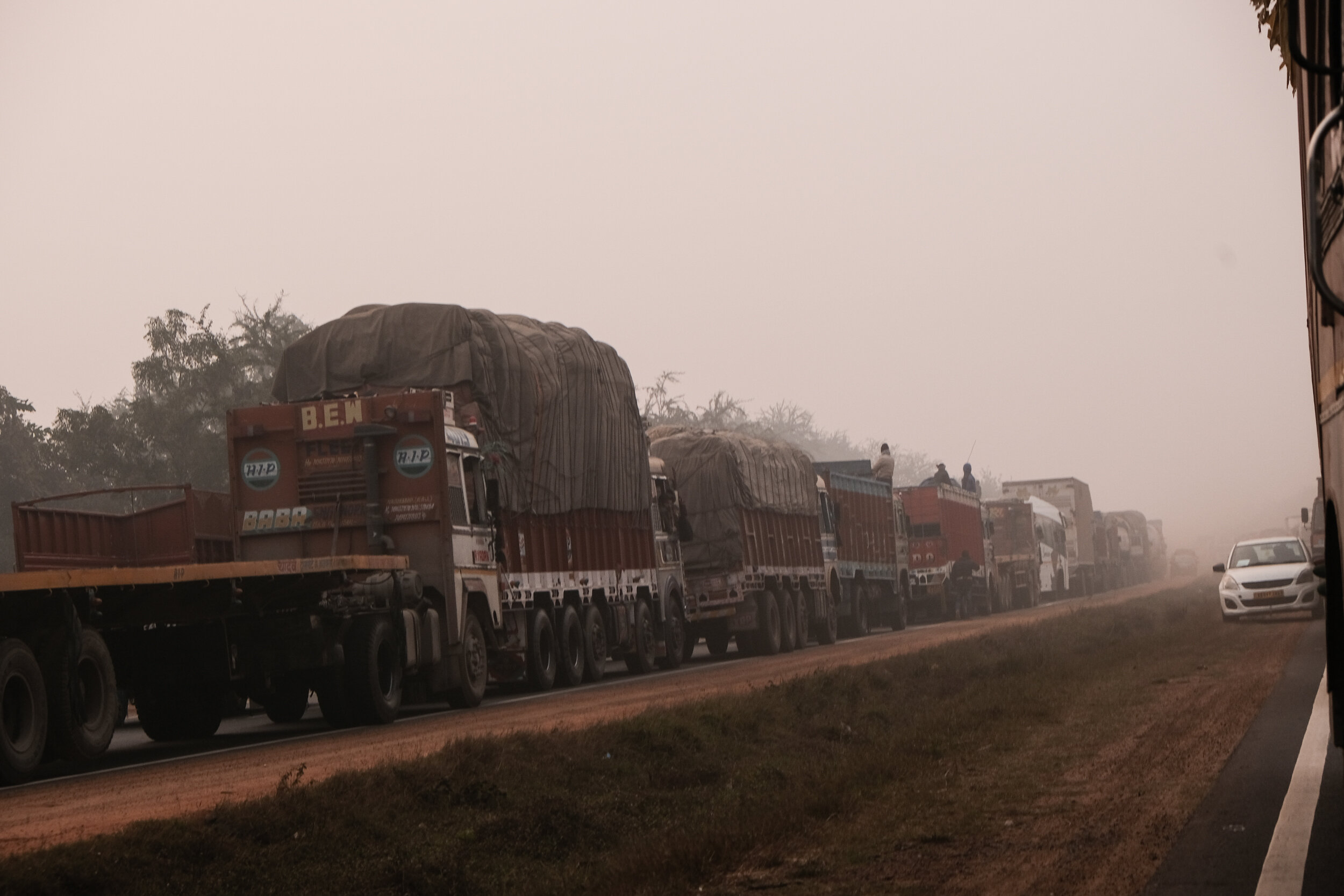
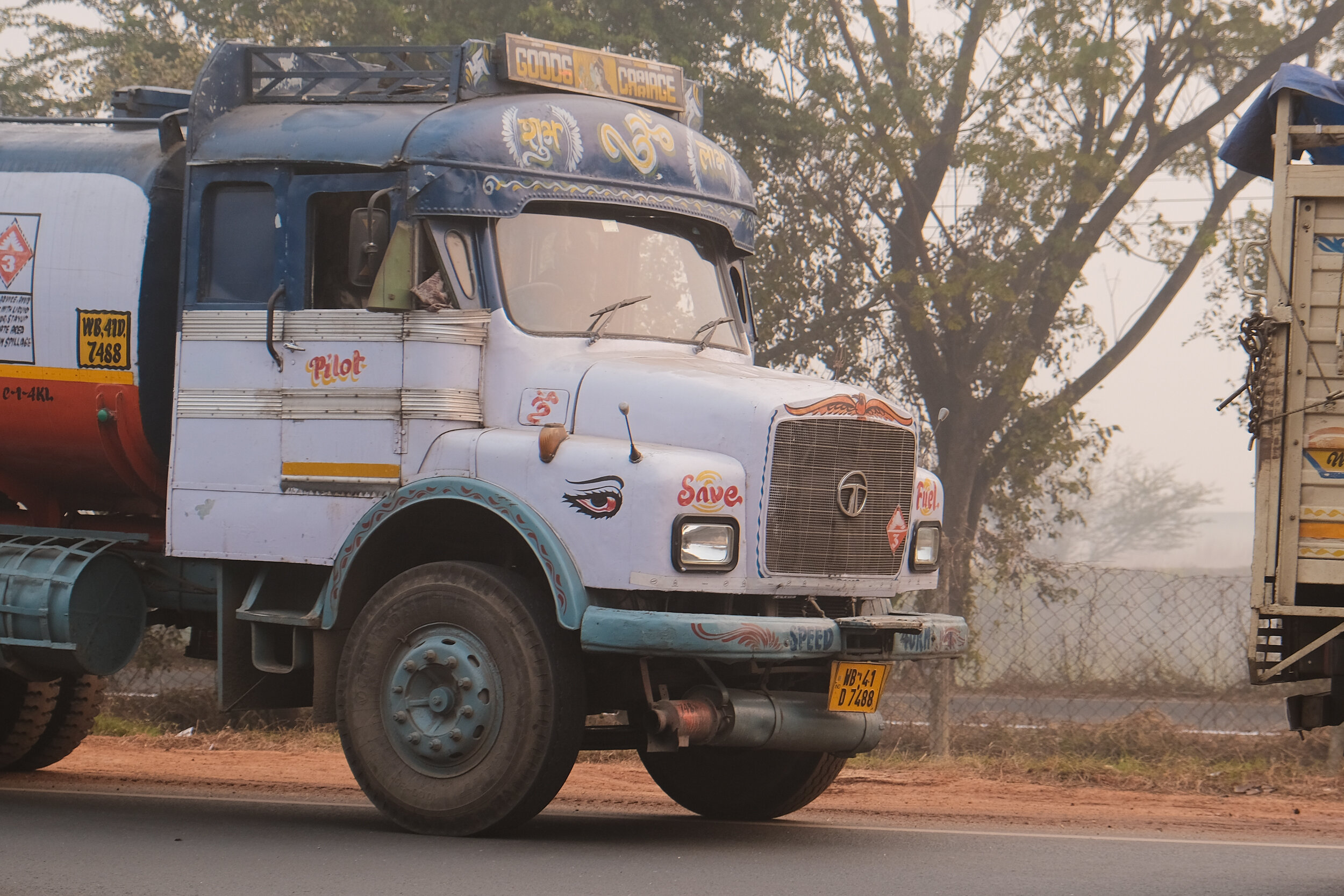
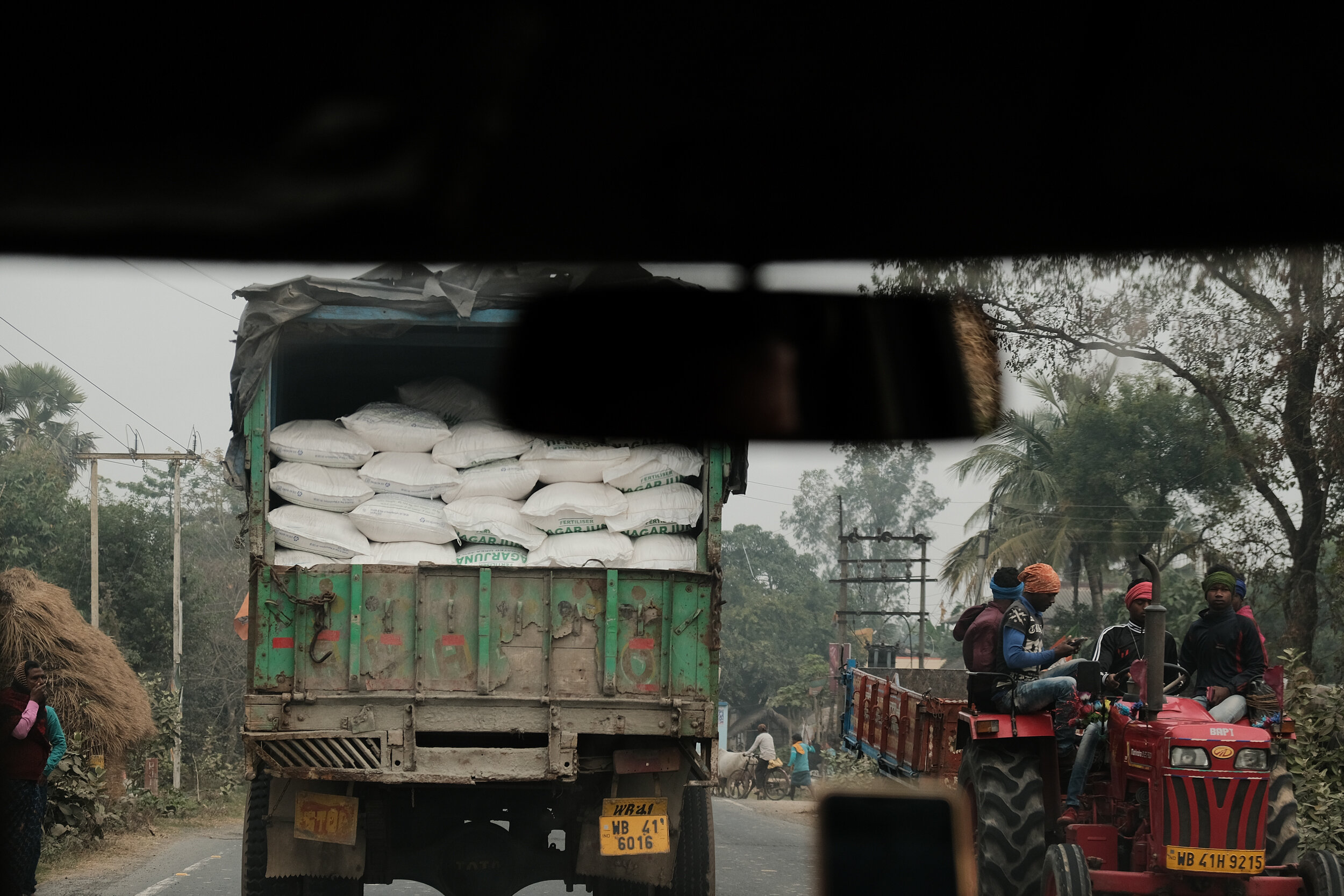
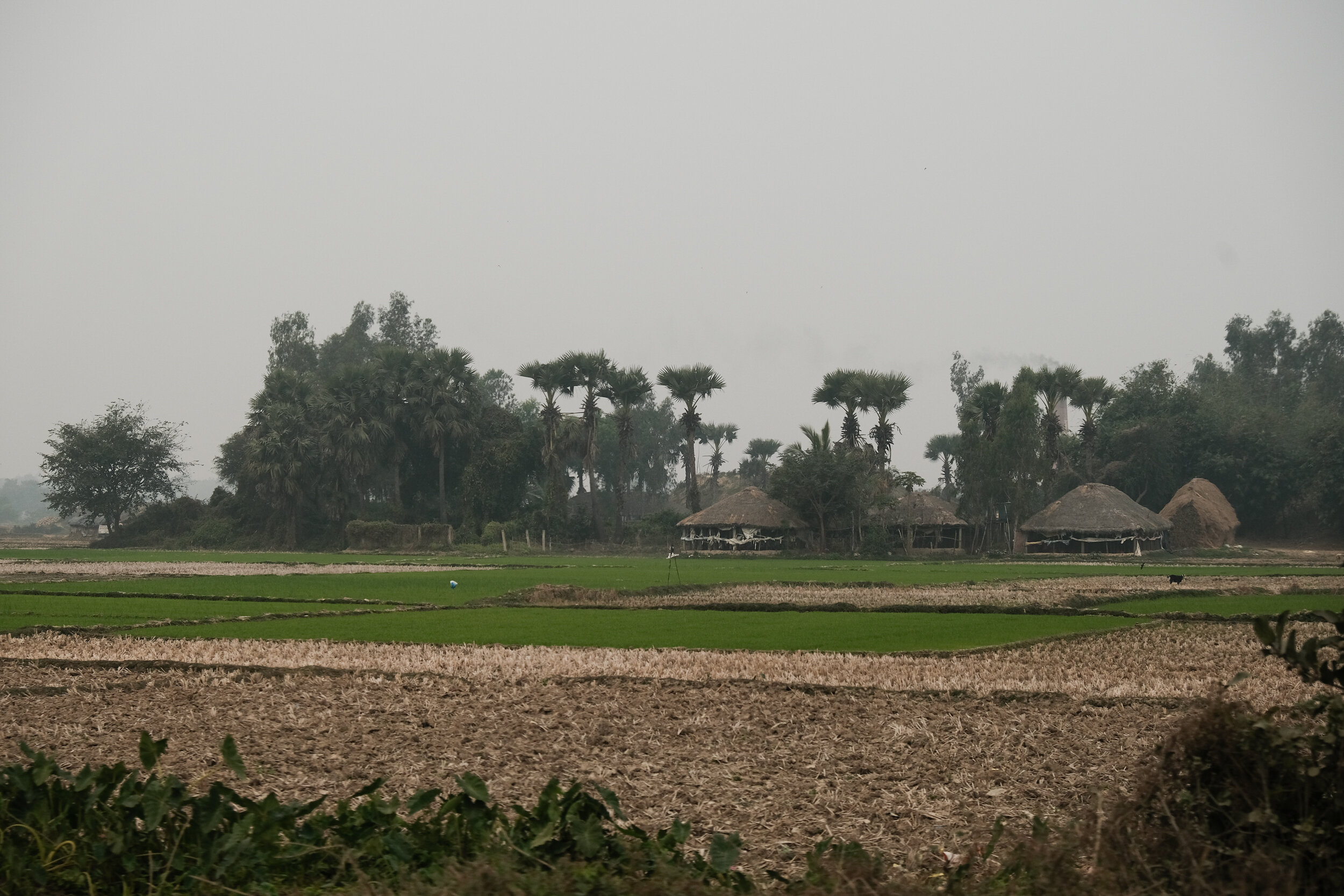
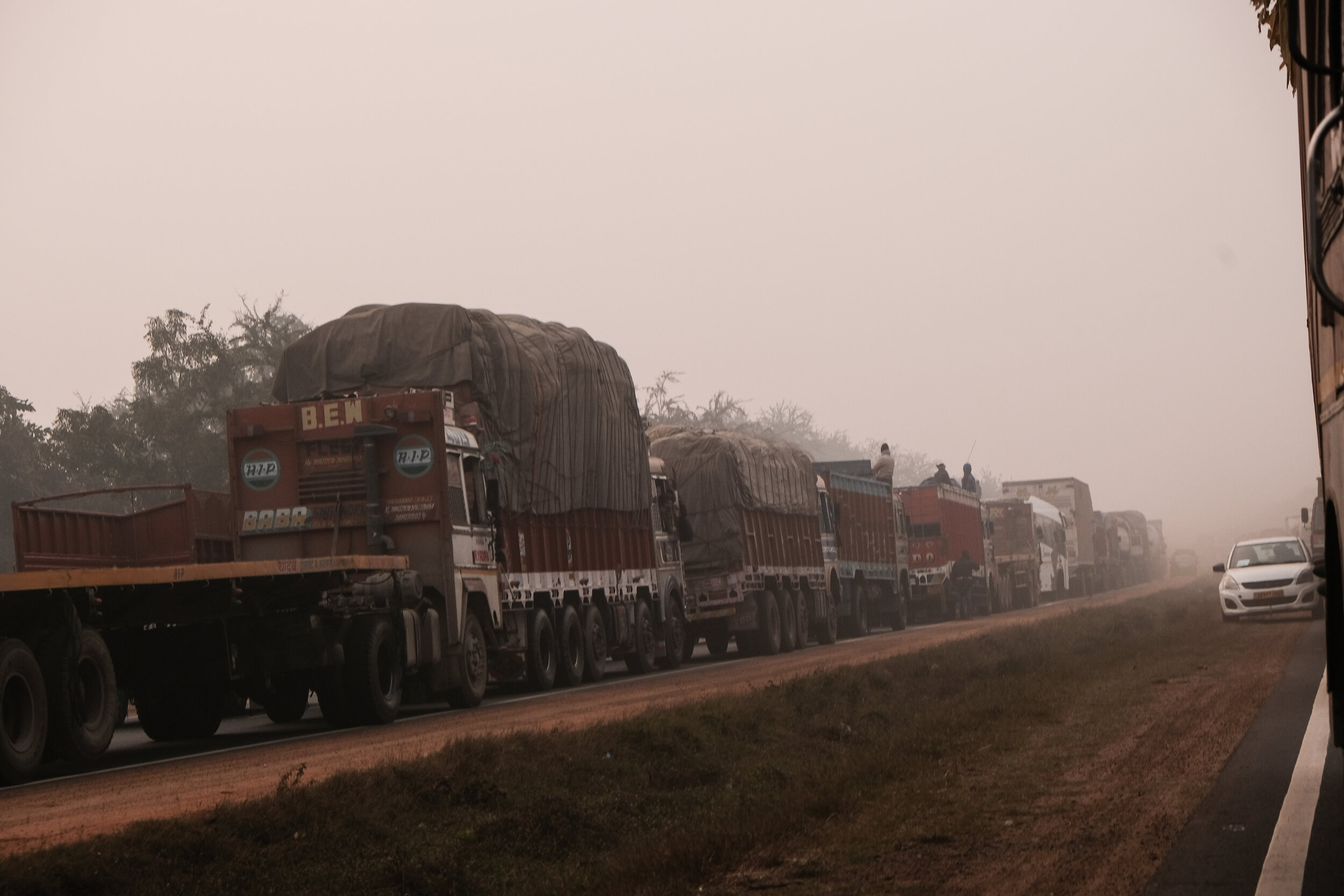
Dibakar meets my driver and me on a scooter at the high school landmark, clad in the bright orange I remember him wearing, and leads us to their house. Orange flowers are draping over their outside wall, and I enter a courtyard to see a lovely cement home painted a salmon color, with white designs around the border. A flower garden is in bloom with orange and yellow marigolds.
Rina, Dibakar, and I sit and have tuulsi tea, doing our best to communicate. They both speak a bit of english, which far surpasses my Bengali, and we find ways to get ideas across. I learn there will be music in the evening, and they have invited some friends. I express that I’d like sit with them beforehand, to learn some music. First though, they’d like to show me some sights. Rina will stay and cook lunch while Dibakar takes me on the back of his scooter around the area.
I’m happy enough just being on the scooter and admittedly feel pretty cool as the passenger of Dibakar. At my request, he took me to a market, Amar Kutir, where I could buy a panjabi. There we ran into one of his friends playing Baul music on dotara. I was invited to sit by him and handed a drum. I played some rhythm and tourists took our picture. Then we went to the my favorite stop, Srijani Shilpagram, the Eastern Zonal Cultural Center. There was a fascinating “village” section where they had constructed traditional homes from the surrounding West Bengal area. Upon entering, you would see their traditional instruments, costumes, crafts, and other ways of life. Again, we run into a Baul musician, this time playing a percussion instrument called the khol. I am studying his rhythmic pattern with my hand, and he spots me. He hands me a drum and invites me to sit and play. More tourists take our picture.
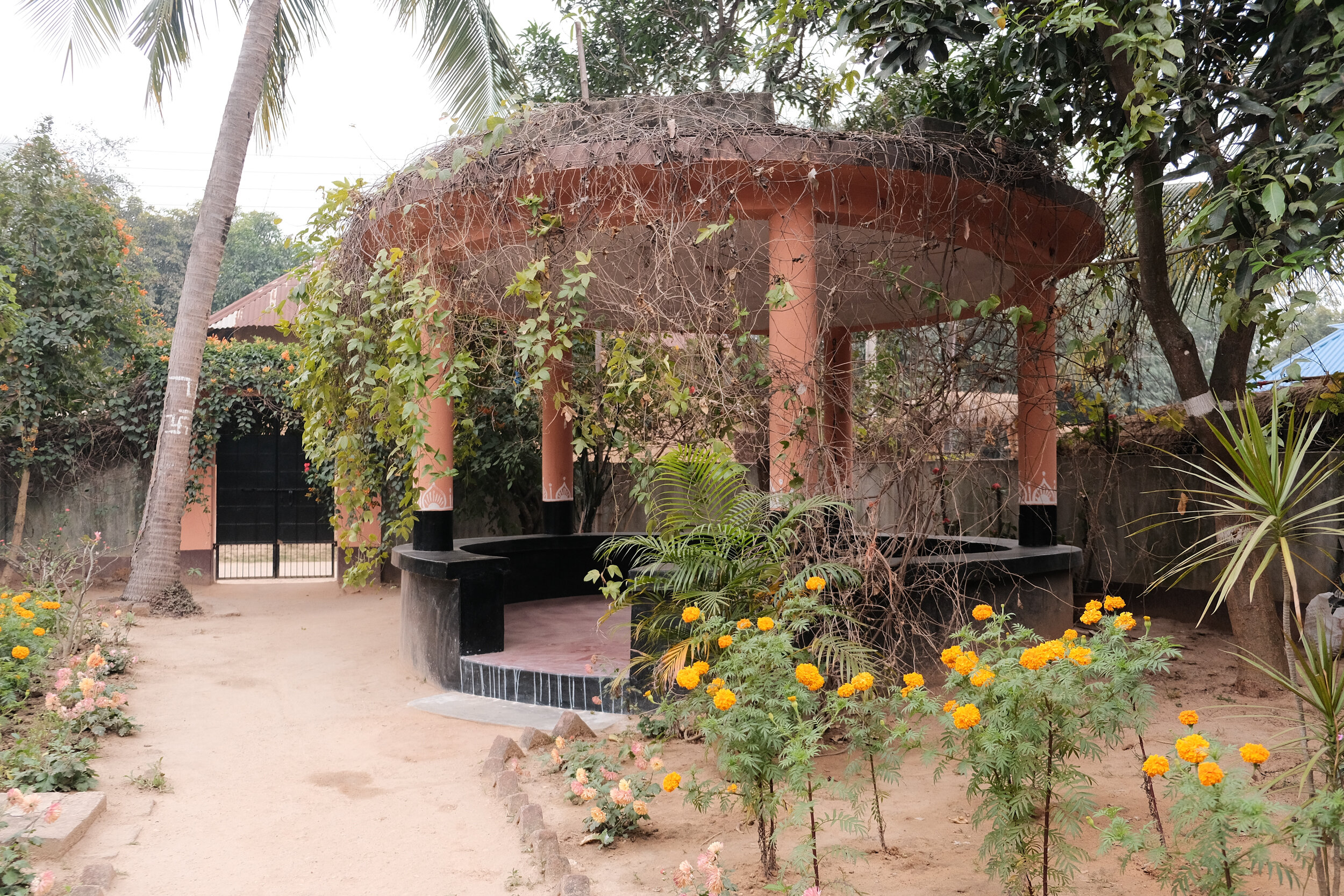
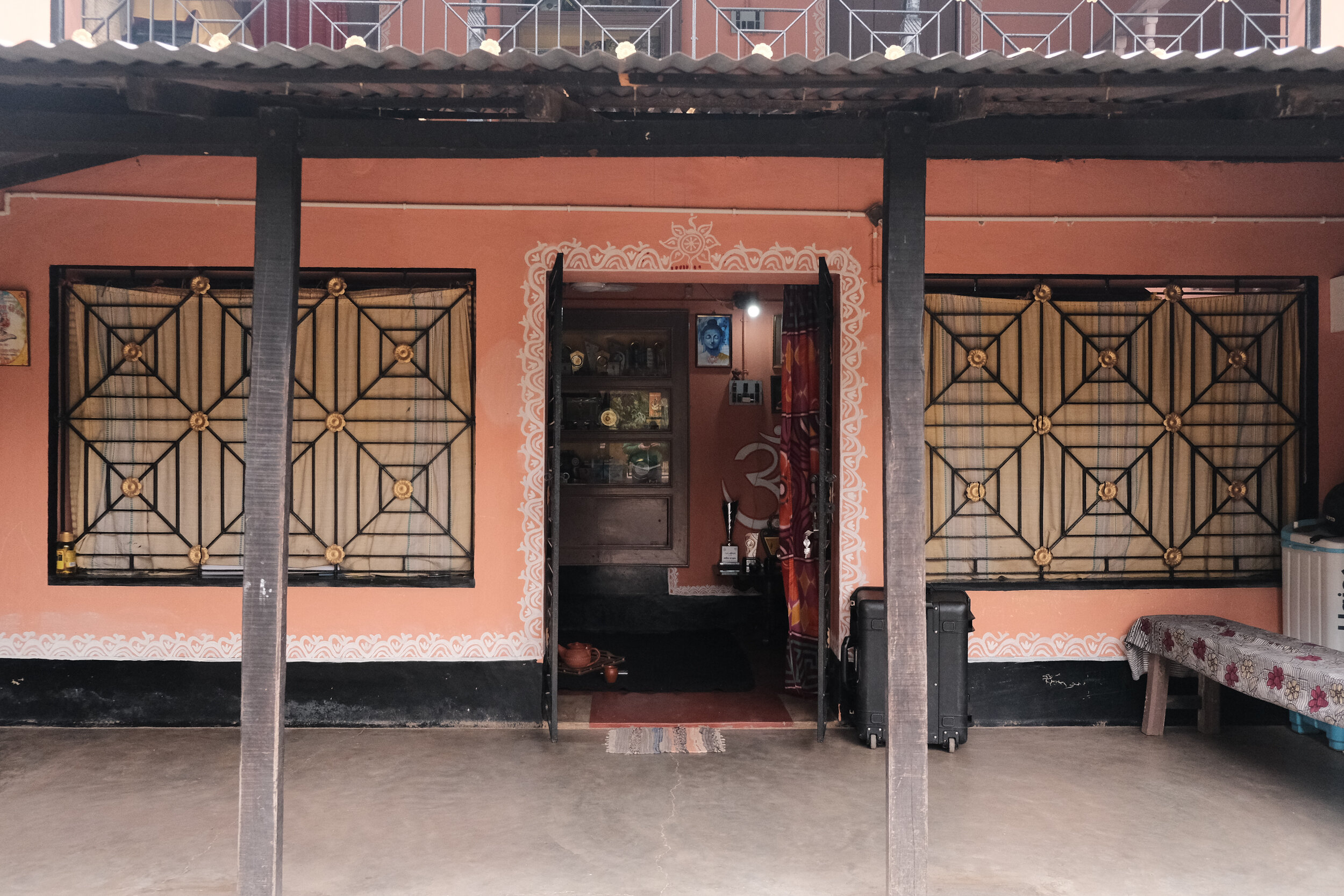
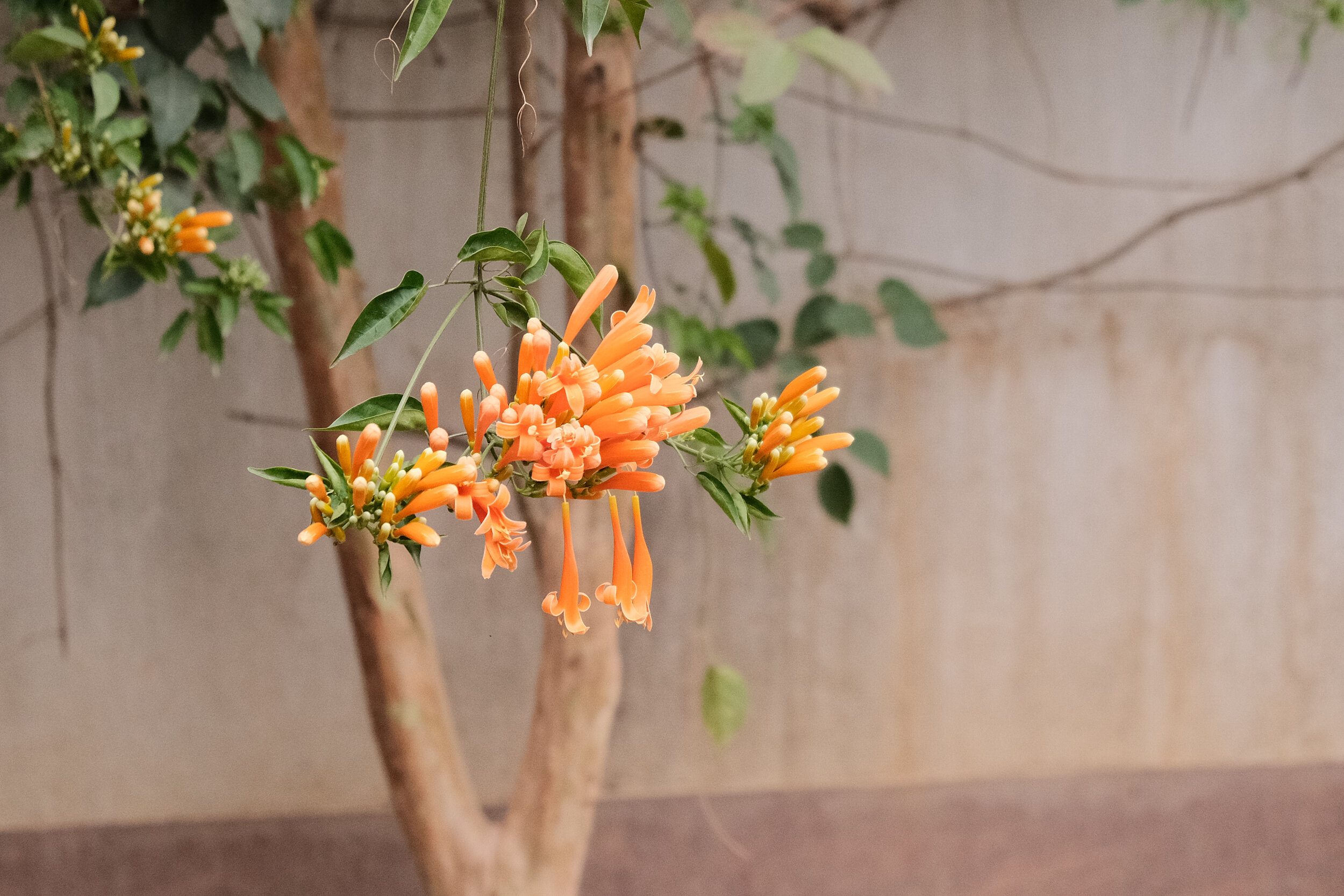
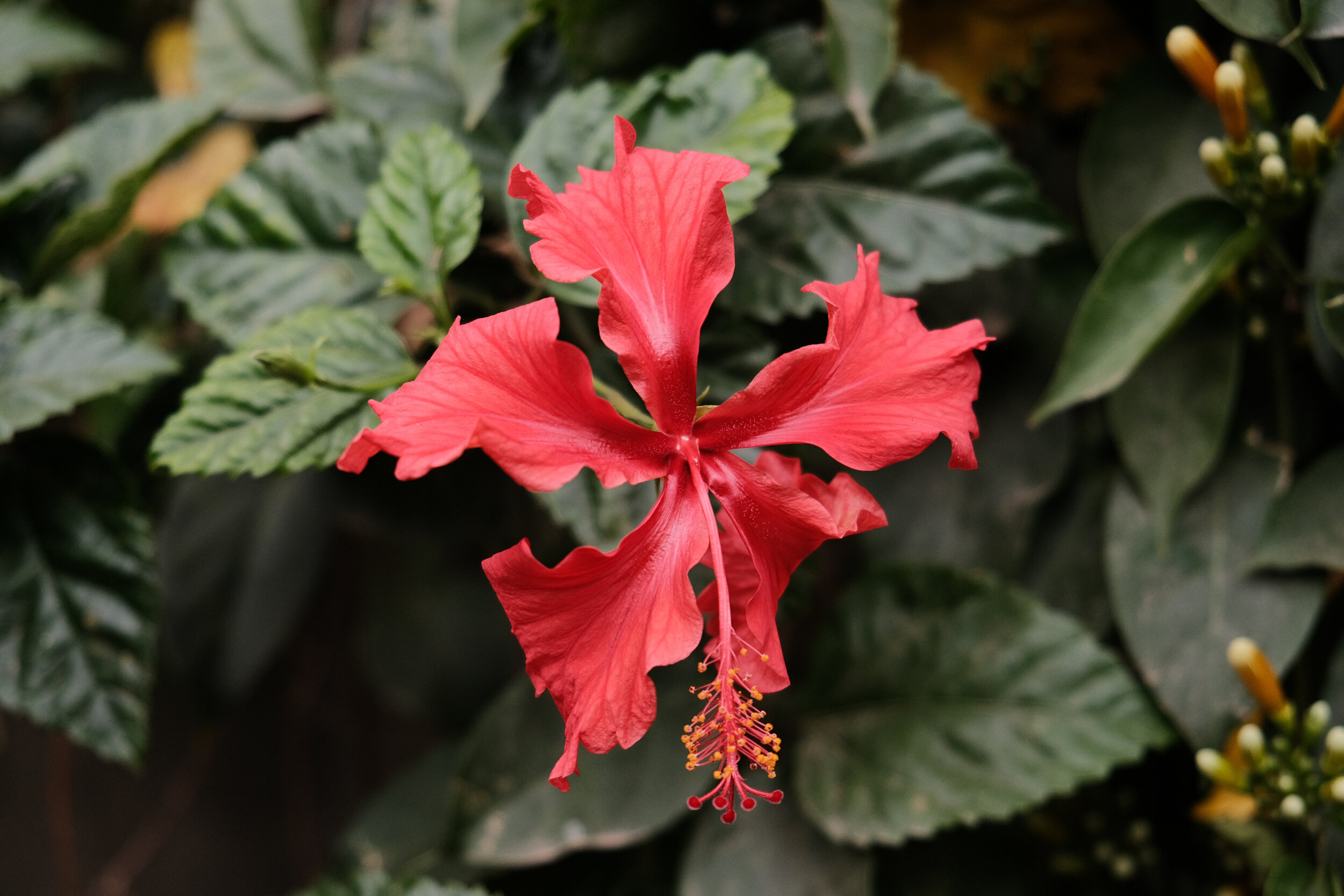
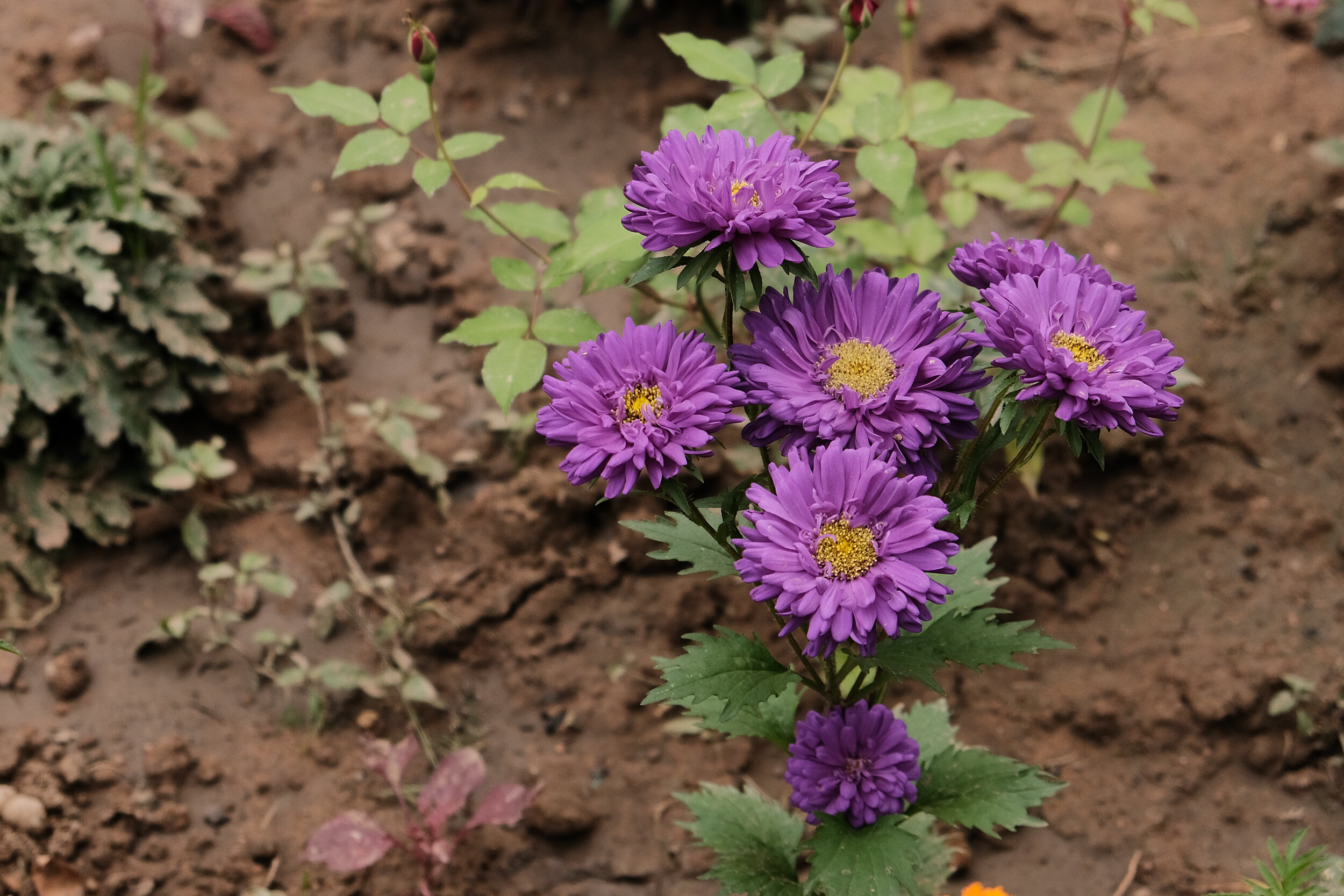
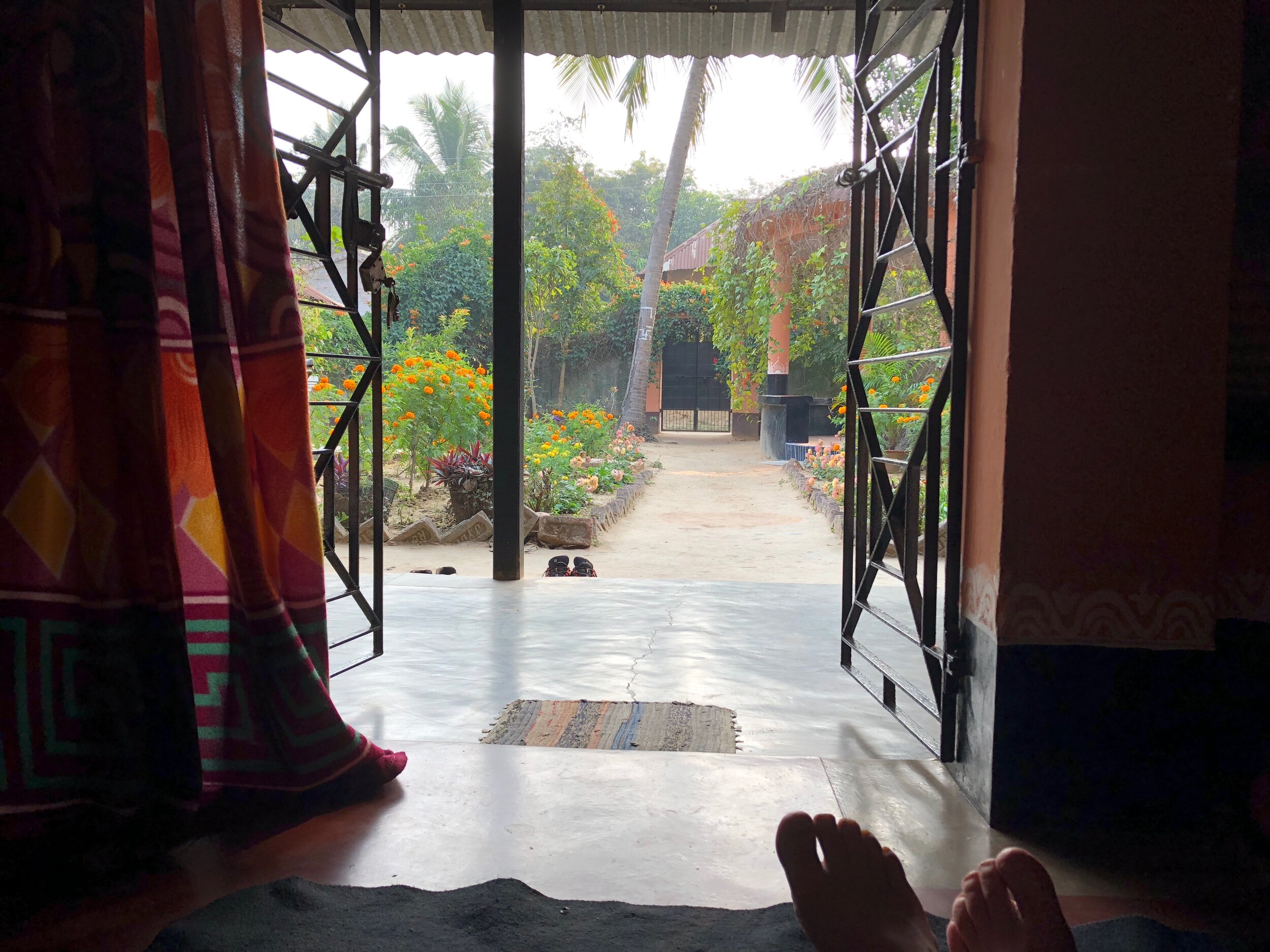
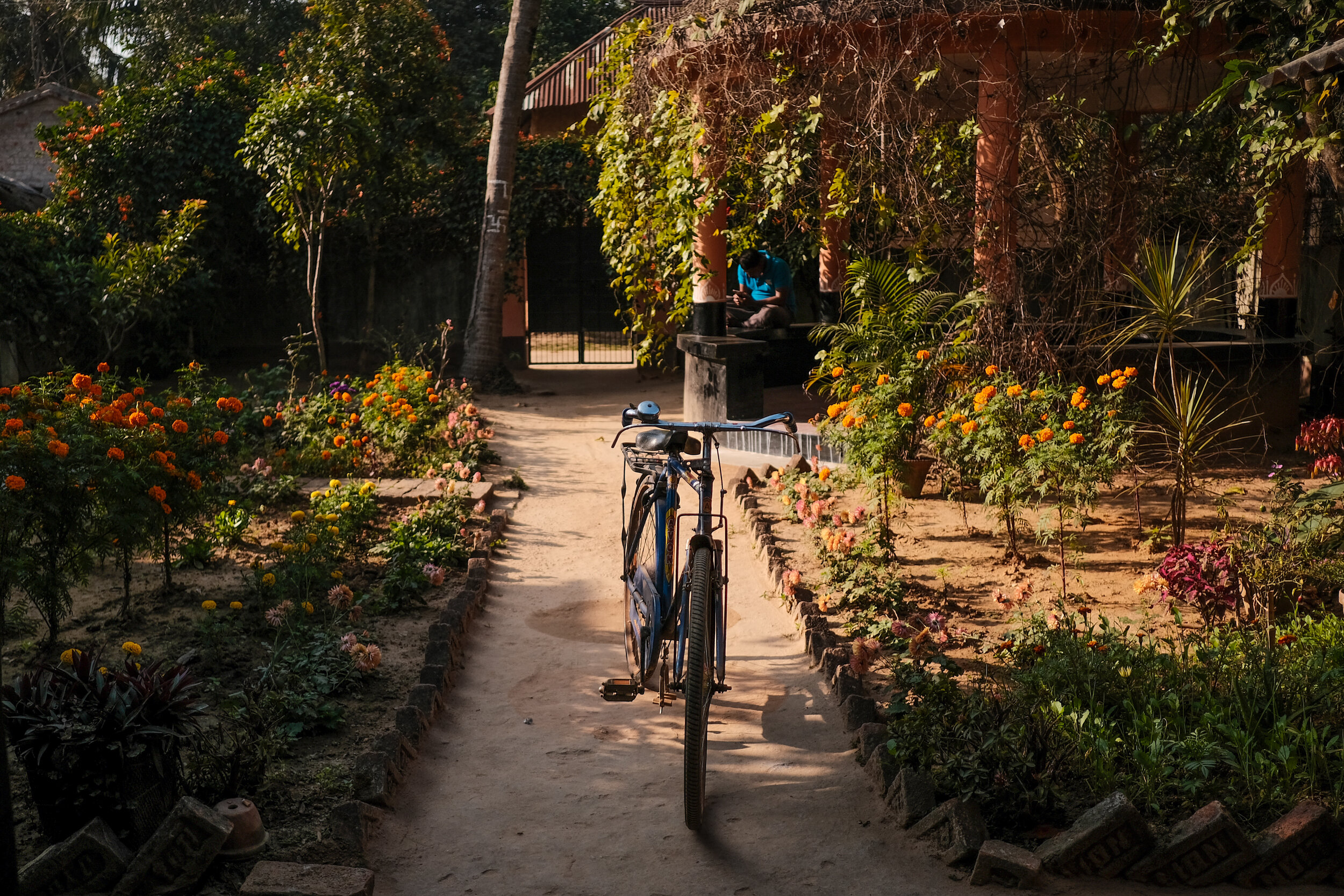
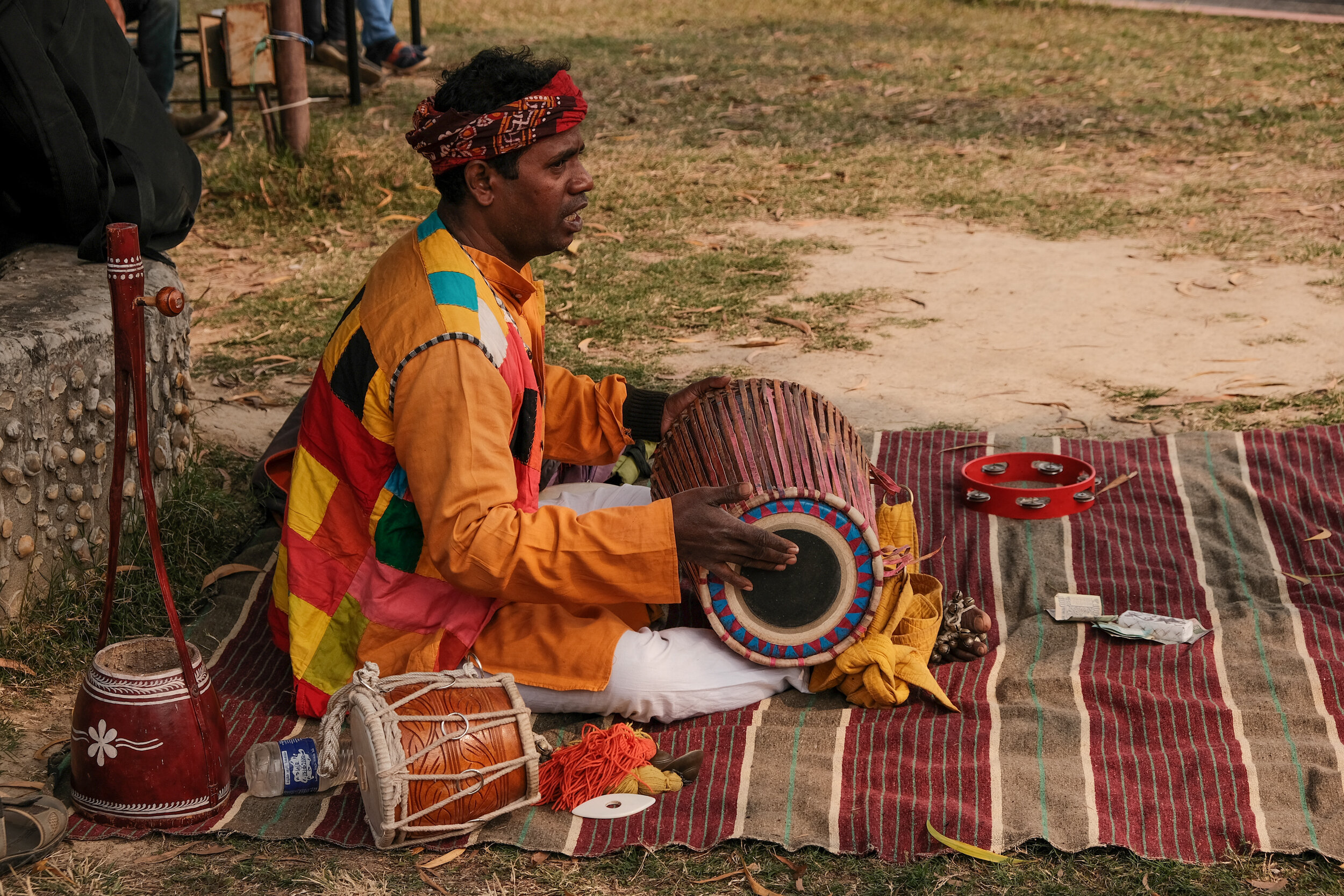
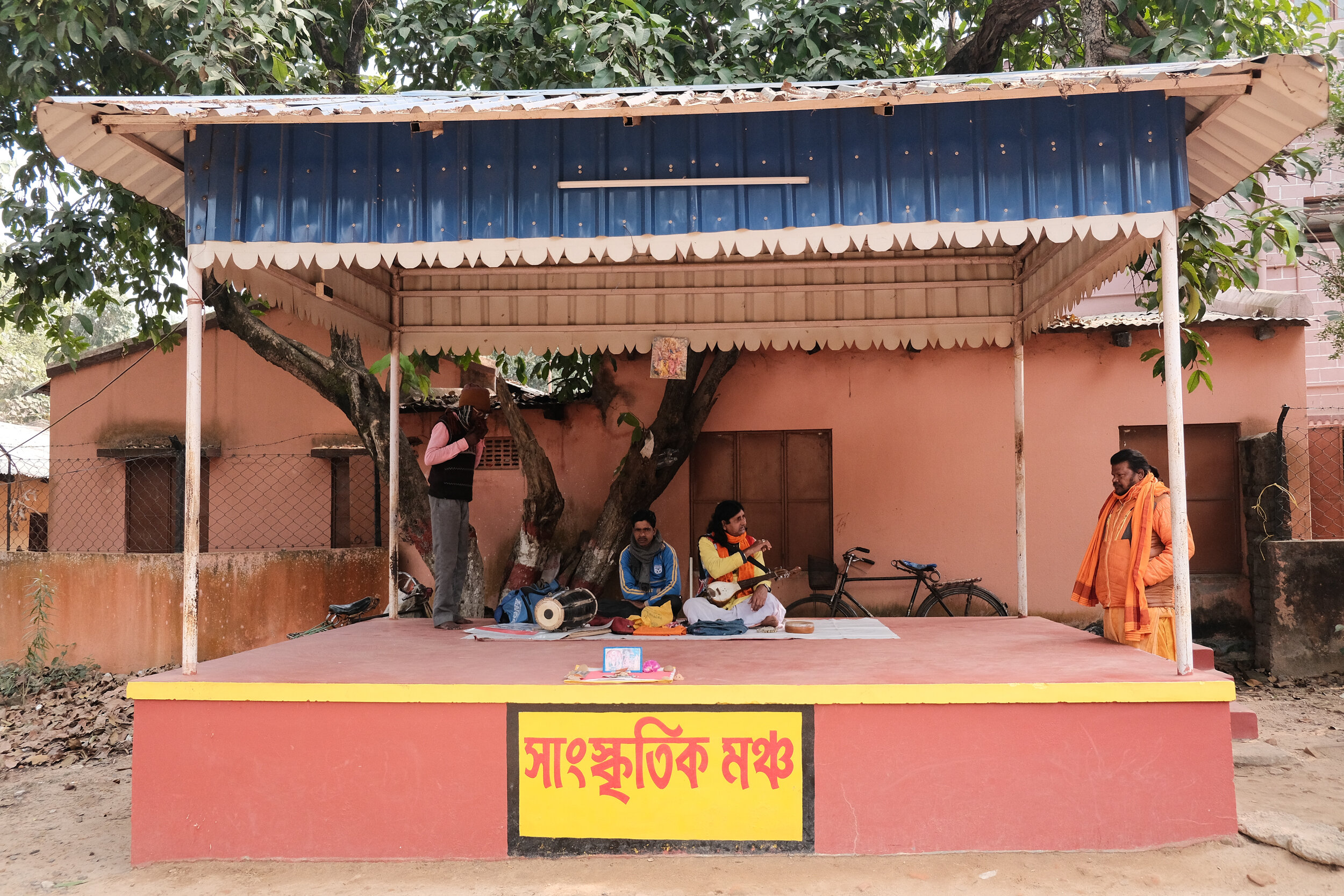
We return to the house for a home cooked meal. The early morning, plentiful food, and peaceful atmosphere get to me and I decide to rest up for the evening, not really knowing what to expect.
Rested, I bring my fiddle down to their seating area. It’s a narrow enclosed porch of sorts with dotaras hanging from the wall, a harmonium in the corner, and a couple of ektaras, bells, and a dub ektar. I play a couple of American tunes for Dibikar and Rina. We drink more tea, this time ginger and cardamom. Singing is a big part of the Baul tradition and everyone seems to do it (judging this by everyone I met later that night). They ask if I sing and I share the old time song, Country Blues. I explain the lyrics and Rina says they are similar to their folk songs as well. Many parts of the human experience are universal. If I understood correctly, Baul songs also speak of the human experience, but there is an additional level of spirituality to the lyrics as one tries to reach a higher level of being for themselves, the ideal person, or “moner manoush.” (Note: One of the Bauls at the festival said to me when we met, “moner manush, manush moner - God is man, man is God.”) We talk about how Bauls do not believe in a caste system, and that men and women are equals.
They get out their instruments and begin to play a song. We are joined on manjira for a bit by someone I recognize from the Baul festival. I quickly set up the GoPro, feeling that some music is about to happen.
It’s part jam and part rehearsal. They take time to show me a few instrumental melodic parts that mirror the singing. There is no harmonic component to the music, but an underlying drone is present from the one-stringed ektara. The songs are played out of a scale which at times resemble western ones I’m familiar with, and other times not - having both flat and natural 3 and/or flat and natural 7. The dotara has no frets and easily incorporates what are called microtones - which are additional notes between our western half-steps. The melodies are very rich and foreign to me. Since I don’t understand the lyrics, it’s sometimes hard to tell the distinction between sections. Often, it’s not until after ~10min that I begin to hear the shape of the songs. My brain didn’t have enough bandwidth to think about the time signature even once, and I only focused on how to accompany with double stops, drones, repeating rhythms, and fills (when feeling daring).
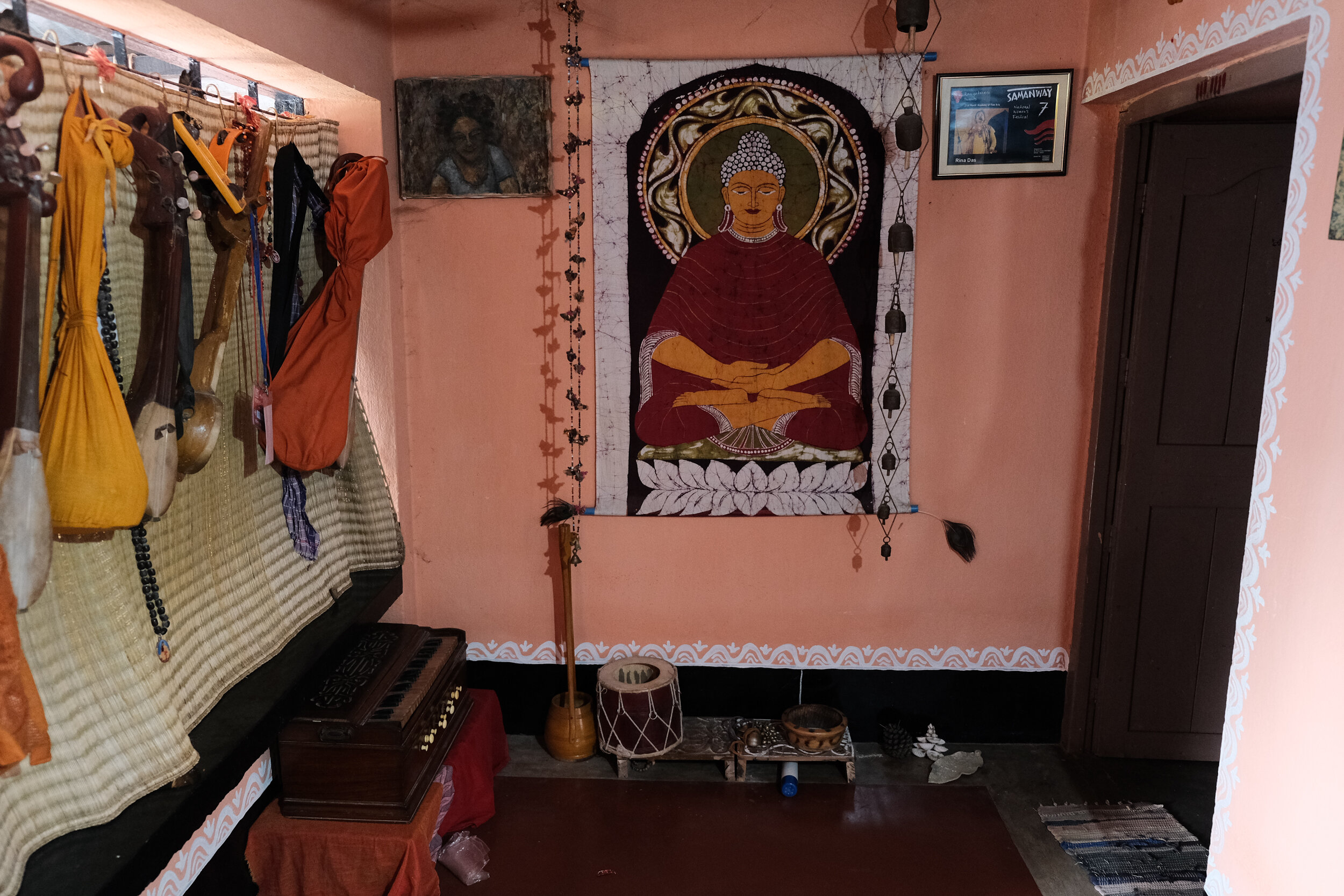
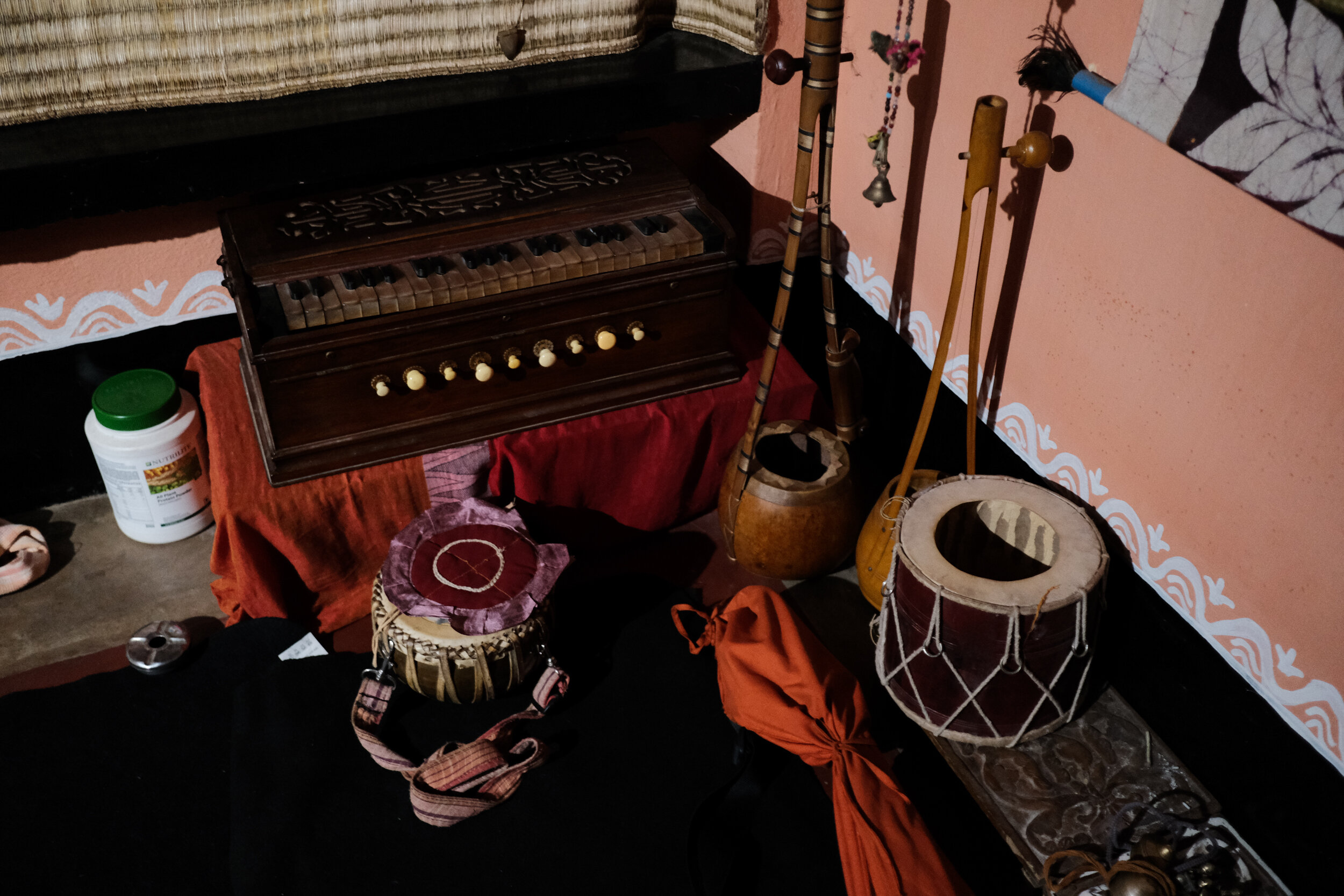
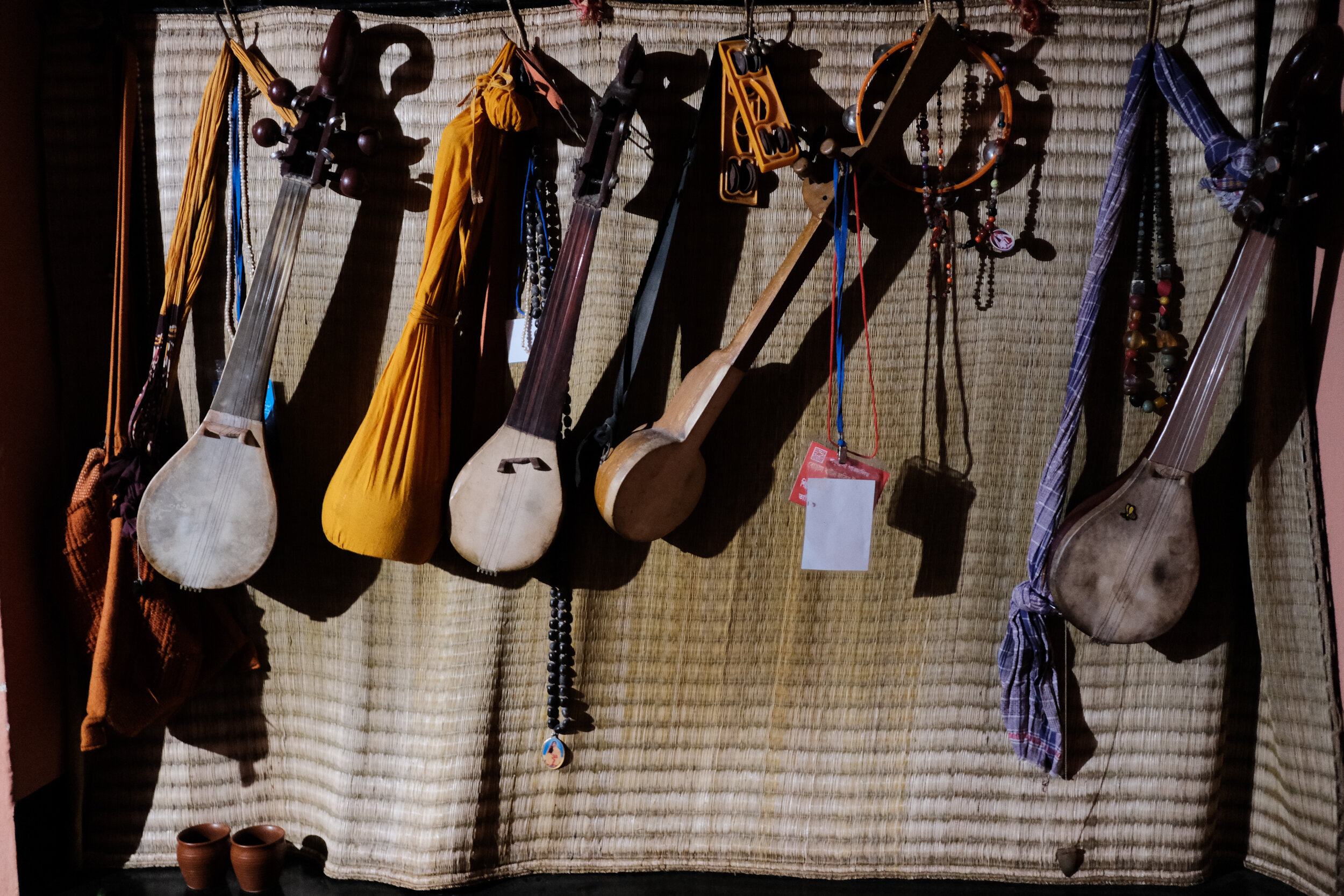
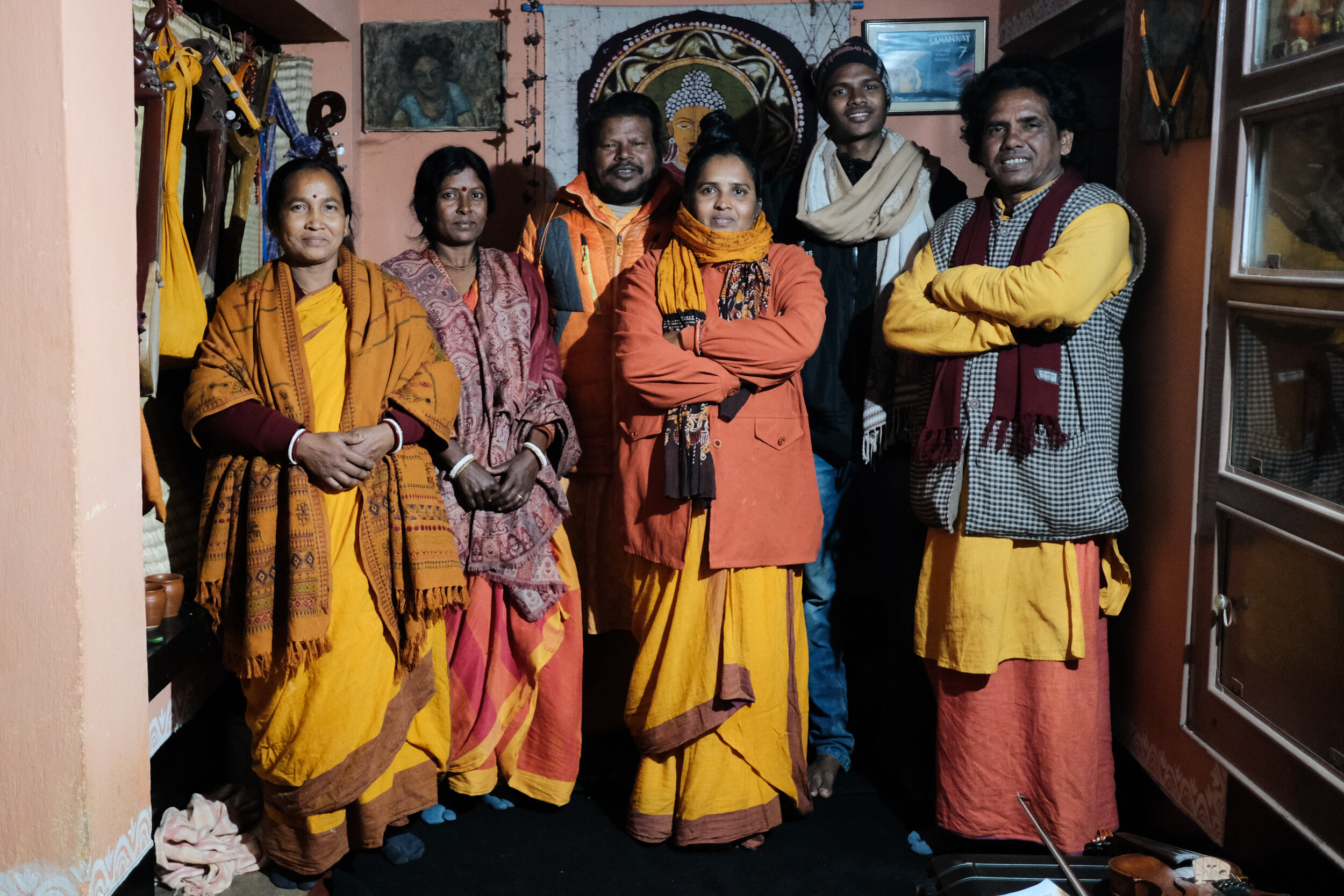
Rina sang a couple songs, including the one I loved from the TV show. Dibakar then started to teach me what I thought was an instrumental. He was repeating lines on the dotara but I had no clue where the beat was. I’d been burned before with finding the correct downbeat, so I asked Bama Das, a new musician who had arrived, to play khol and show me the timing. While they were grooving and repeating the lines, I quickly set up additional microphones. As we worked on the tune, Rina came by and started singing it. I made the request that we record two as a group - the one from the TV and the new one from Dibakar.
We took a short break while I finished setting up. It was now dark, and we had one overhead light. Small and dimly lit spaces are very challenging for video, but great for the music vibe. I don’t want to break the flow of music making, so I try to be efficient to get the best I can on the fly, while being the least obtrusive. My main goal is to make music out here, and that is challenging enough!
As I was setting up, they played a tanpura drone, and began to sing what seemed to be a prayer together. I asked the next morning about this and they said it’s a prayer to their guru, which they do every day around 530/6p. And then they started playing while I was still setting up so I finished as fast as I could and hopped in, not even time enough to put on my new panjabi.
After this moment, the next hours are a blur. People showed up and crowed the small area while we recorded. We did the two songs I know and many others. Rina’s sister joined the four of us on manjira. And Rina’s father was there, who she learned from. He sang two numbers and played dotara. His voice was not loud, but his presence was powerful. Then Dibakar suggested we all take turns singing for each other - a duet with Bama’s wife and Rina’s sister, Bama, Dibakar, their son Parnendu, and finally me. The setup was changing constantly. My iPhone battery was dead so I just used the GoPro and moved the vocal mic around, hoping for the best. I shared many smiles and missed rhythmic cadences with Bama. In one song, Dibakar and I traded melodic lines, and I got my only thumbs-up of the night from him. I feel like things went okay earlier, but after hours had passed, maybe I started to get inside the music a bit. It was a proud moment for me.
I sing one for them, Bama plays along, and then we stand and stretch our legs—at least I do. I'm not used to sitting cross-legged for so long. Good-bye's are exchanged with the musicians, and I will visit the home of Bama for tea in the morning.
Rina, Dibakar, my driver Biswajit, and I eat dinner. Biswajit and I are served first and Rina or Dibakar don't join us. This also happened at lunch. Both times, we were waited on, and when we finished, they ate. There were also a couple things on separate plates we didn't finish (roti, papadam, cut veggies) that they then ate. So, my guess is that, as guests, they wanted to see that we were fully fed first.
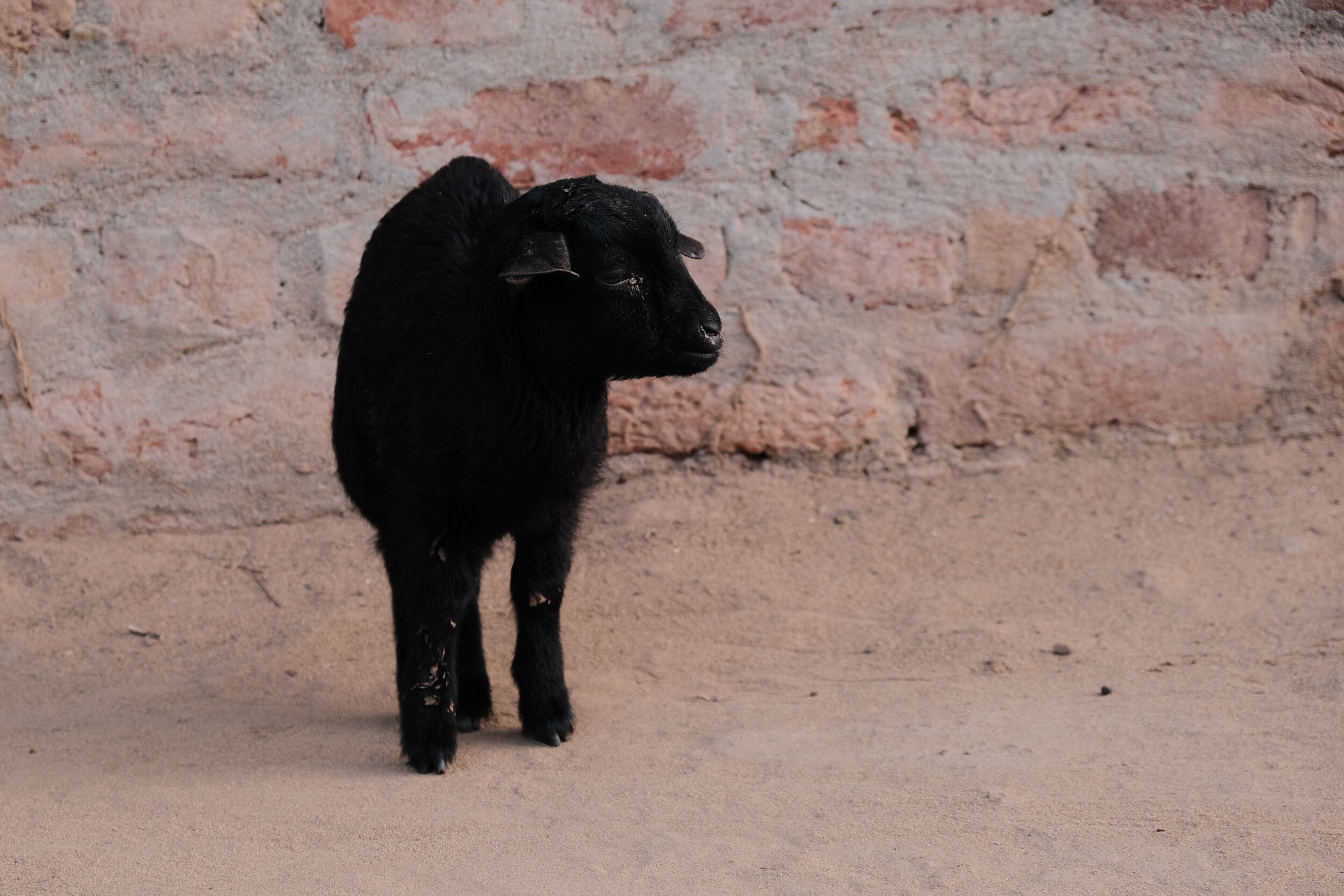
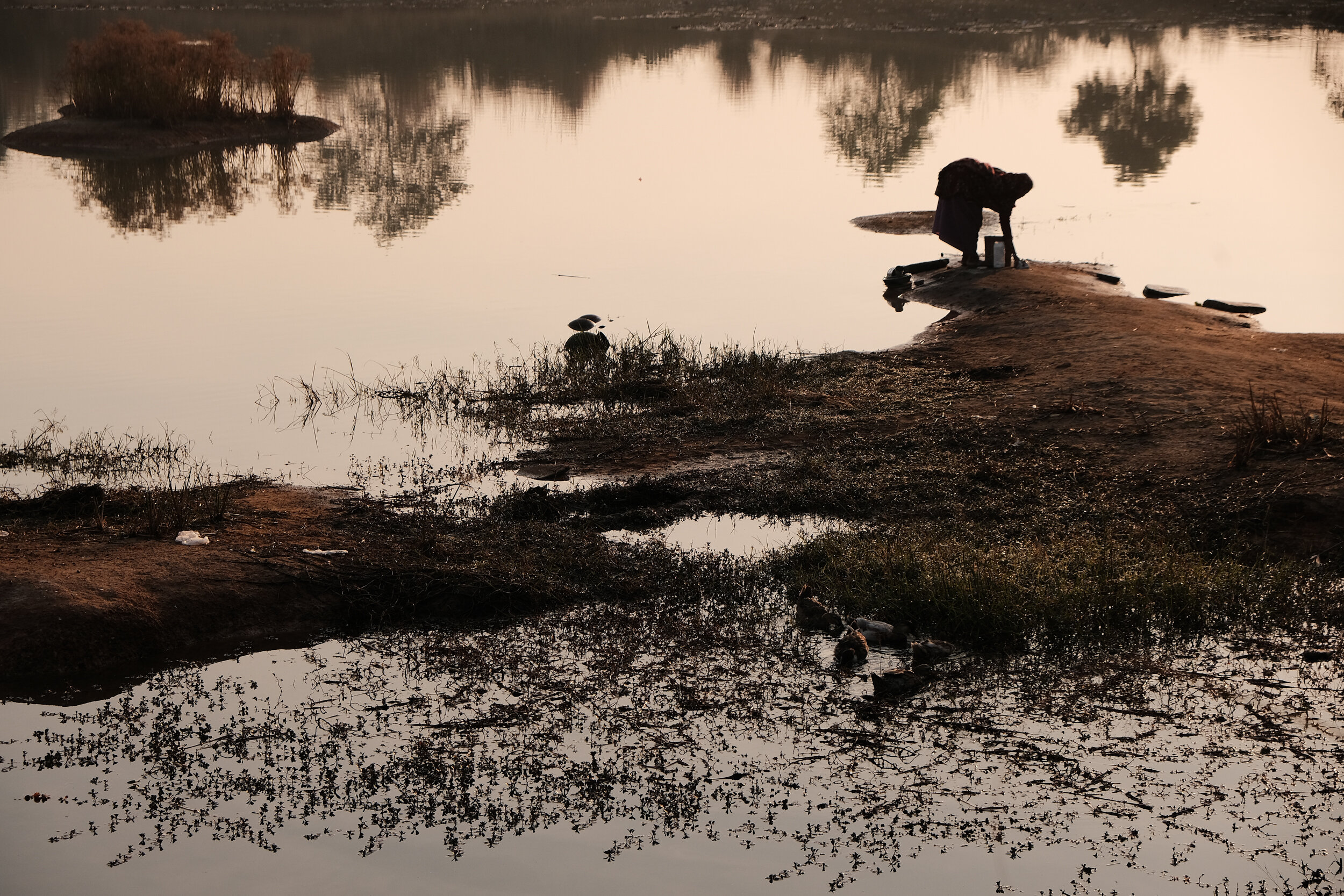
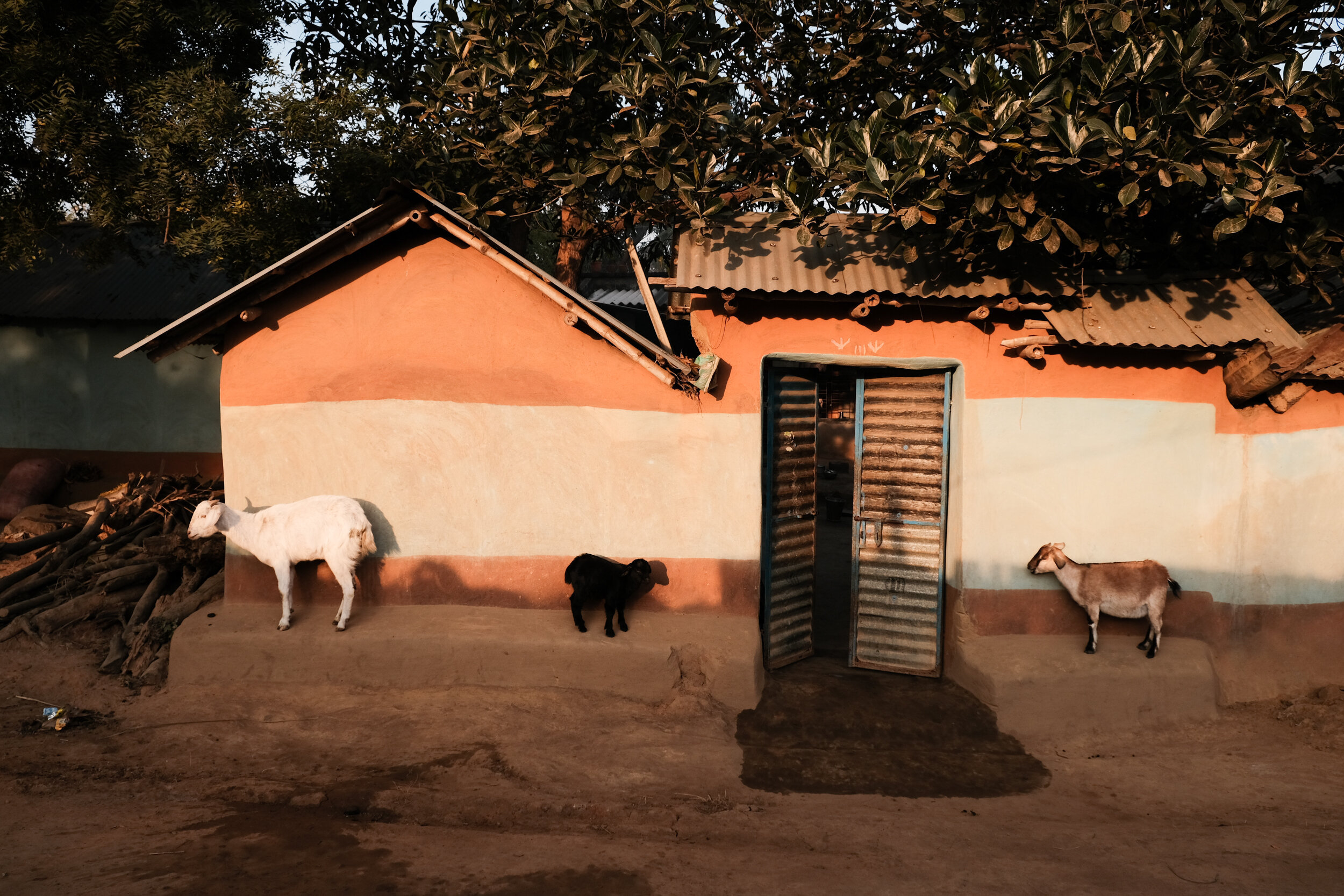
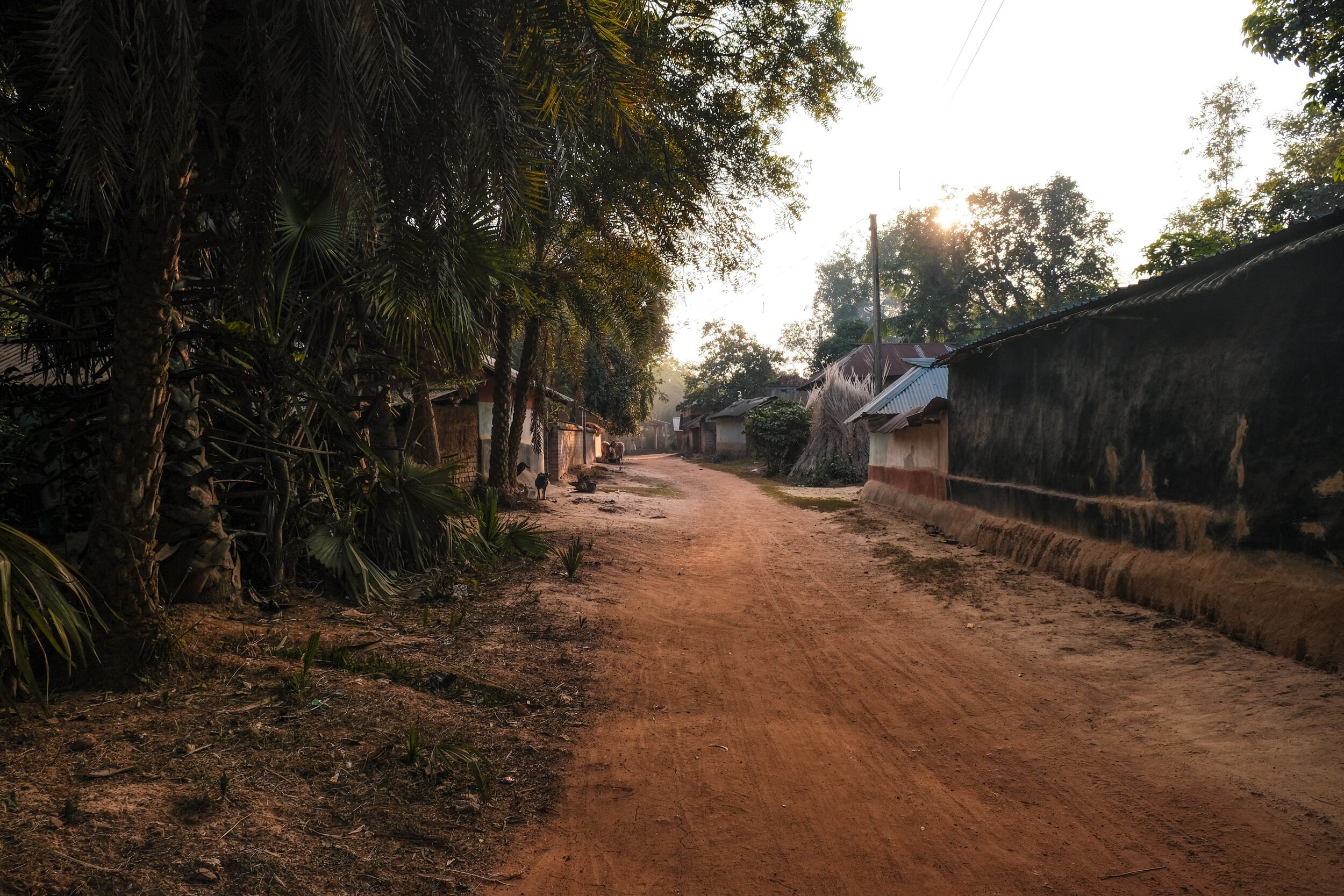
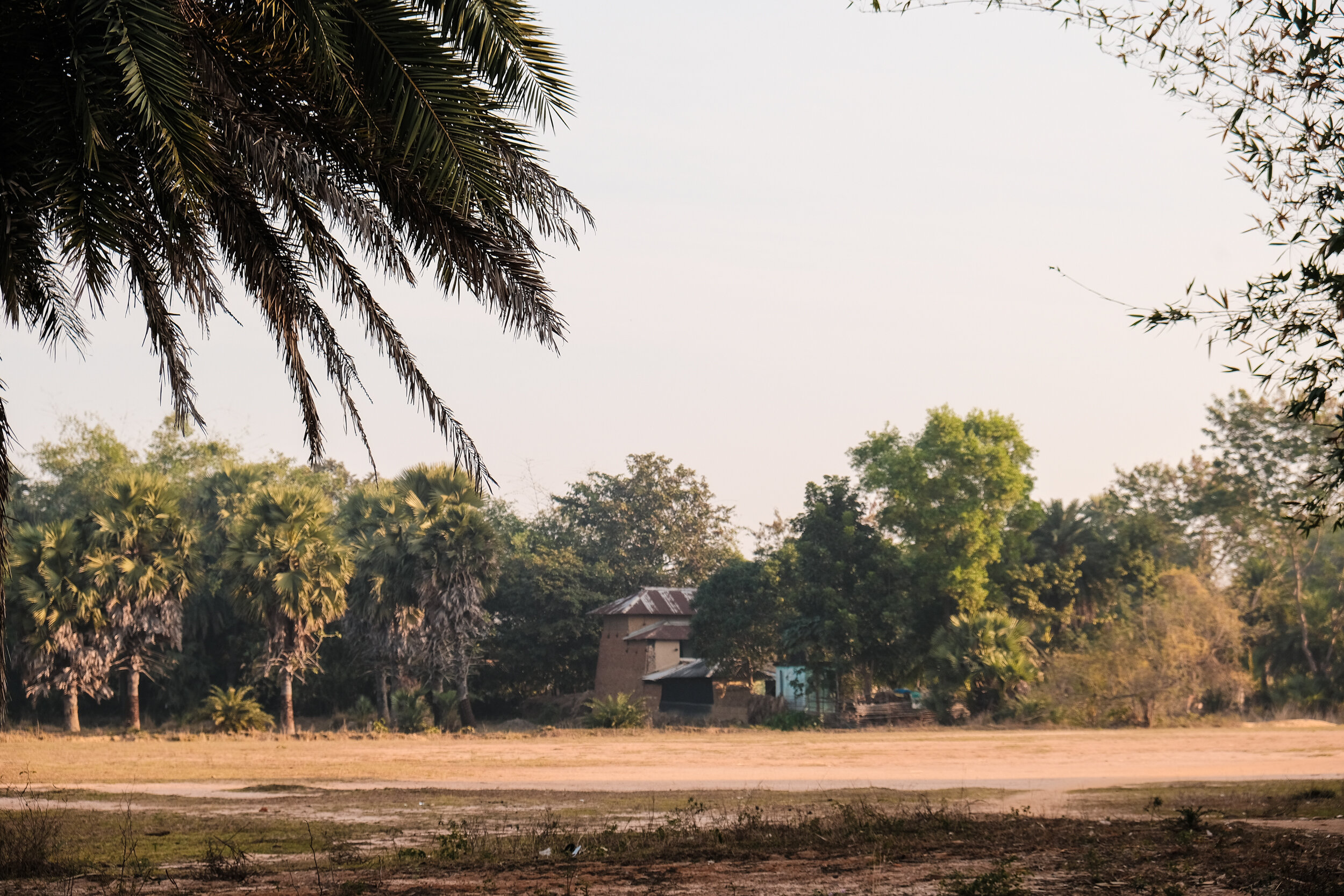
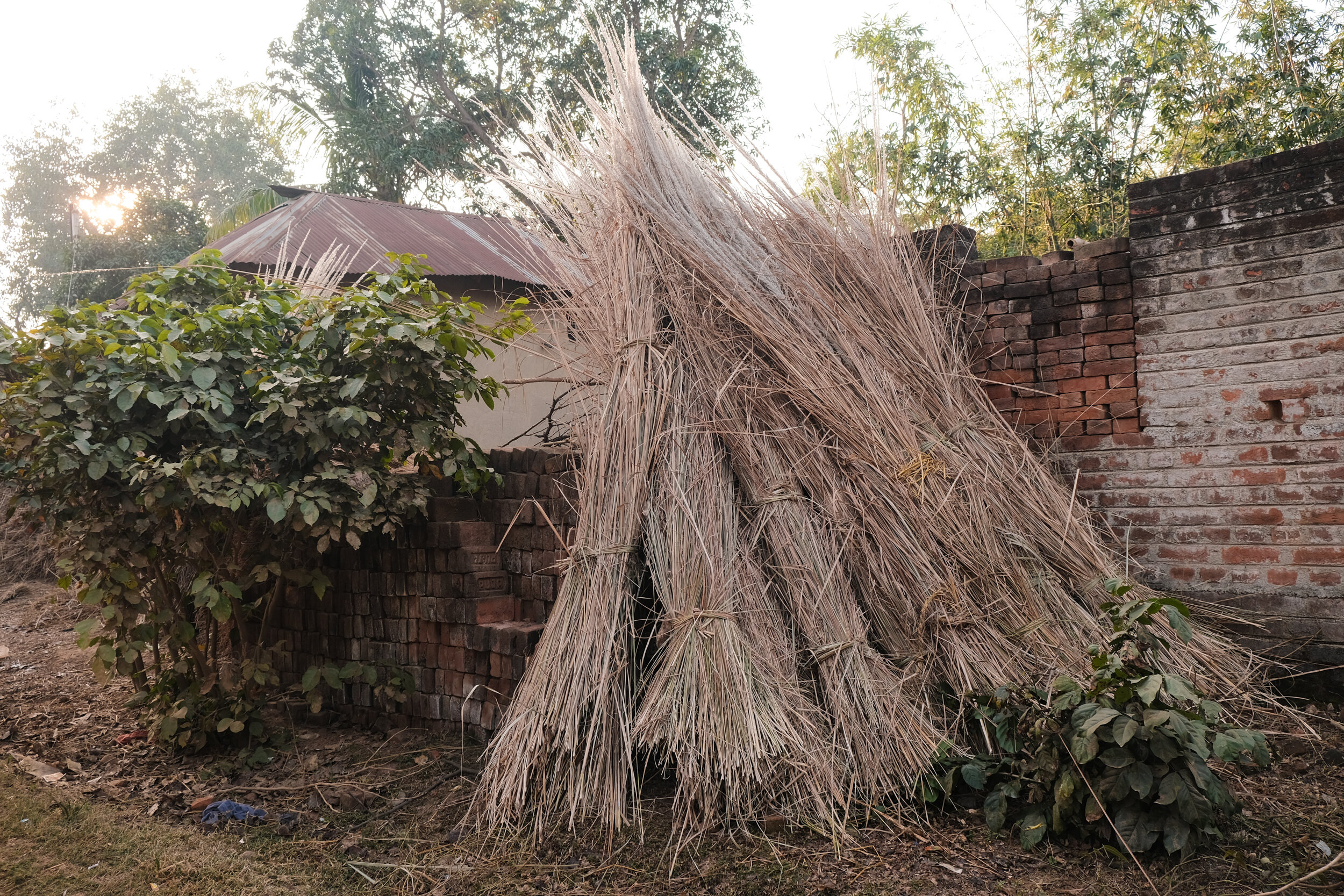
Exhausted, I slept so soundly. Bed on floor. Tin roof above. Nature on the airwaves. I awoke quite early to the sound of birds and drums in the distance. By 630a, I was up recording the sounds of the morning and out walking in the village. People were waking, washing selves, washing dishes, feeding livestock, playing with children, kids were biking.
I got a cooking lesson for making luchi (small fried flat bread) and an aloo (potatoes in sauce) for breakfast. True to form of what I was told the day before regarding Baul gender equality, Rina and Dibakar shared duties around the house equally. I loved seeing this and it reminded me of how my marriage is (at least that's how I perceive it!).
After some tea with Bama's family, I loaded the car and we dropped Rina off at a bus stop in Bolpur for a gig she had later that day. And, as with yesterday, my driver sped off and dodged (mostly) the obstacles that are the craziness of the Indian roads. I sat in the front for the adventurous view and wrote this blog.
CREDITS:
Song: Aye Nagari (Panjusha)
Music arranged by: Rina, Dibakar, Bama, Moyna & Casey
Voice, Ektara, Duggi: Rina Das Baul
Dotara, Ghungharu: Dibakar Das Paul
Shree Khol: Bama Choron Das
Manjira: Moyna Das
Fiddle, Audio & Video: Casey Driessen
SPECIAL THANKS:
Paramita Battacharyya
Baul Fakir Utsav Festival
Banglanatak dot com


